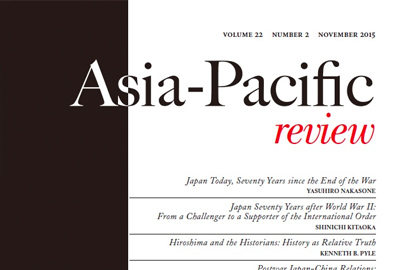2014/03/06
A Strategic Dialogue with a Vietnamese Think Tank
From March 5 to March 6, 2014, IIPS members visited Hanoi, Vietnam and exchanged views on maritime security with the Vietnamese government and a think tank.
The Diplomatic Academy of Vietnam and IIPS together held a 1.5-track dialogue lasting the entire day of March 6, bringing various Vietnamese government officials together in one place. IIPS members also exchanged views with individuals from the Institute for Defence International Relations of the Vietnamese Ministry of National Defence, the Institute of Chinese Studies of the Vietnam Academy of Social Sciences, and the National Border Committee of the Vietnamese Ministry of Foreign Affairs.
Those at the meeting shared their appraisals of the current state of Japan-Vietnam maritime relations in the area of security, based on the strengthening of the Japan-Vietnam strategic partnership that has already been agreed to bilaterally at the governmental level. They also discussed further possibilities for bilateral cooperation.
Five people from IIPS participated: former Air Self-Defense Forces Lieutenant General Toshimichi Nagaiwa, former Maritime Self-Defense Forces Vice Admiral Yoji Koda, Takushoku University Professor Takashi Kawakami, University of Tokyo Associate Professor and IIPS Senior Fellow Shin Kawashima, and Senior Research Fellow Futoshi Matsumoto.
At the start of the meeting, the topic was China's domestic and foreign policy. Senior Fellow Shin Kawashima made remarks about recent changes to China's diplomatic policy, and Japanese and Vietnamese specialists shared what they thought about relations with China.
The next topic was territorial issues in the South China Sea. Vice Admiral Koda explained the importance of the South China Sea as an international public good and then lectured, in detail, about matters such as the importance of alliances and the necessity of improving surveillance capabilities. Lieutenant General Nagaiwa gave an in-depth explanation of the Japanese response to China's possible establishment of an ADIZ in the South China Sea.
Subsequently, Professor Kawakami talked about the present state of the US-China relationship. In particular, he presented his analysis of the US QDR, which was released during the trip to Hanoi that is the subject of this article. This analysis was praised as timely.
Finally, Senior Research Fellow Matsumoto spoke on Japan-Vietnam cooperation and provided specific suggestions for conducting various types of bilateral cooperation in the areas of diplomacy and defense, holding minilateral talks among the countries of the region, and working toward closer collaboration in multilateral fora such as the Japan-ASEAN consultations, the East Asia Summit, the ARF, and the ADMM-Plus. Thus, the high potential for Japan-Vietnam cooperation was unanimously agreed in the dialogue.
It was evident that the Vietnamese highly valued the results of this dialogue. The dialogue was also timely in that it just preceded the Vietnamese president's visit to Japan the following week.



